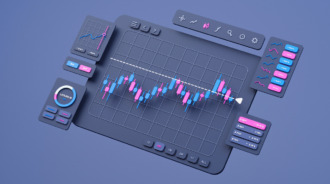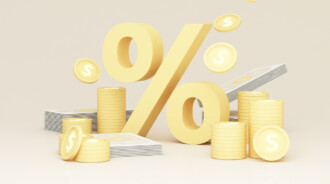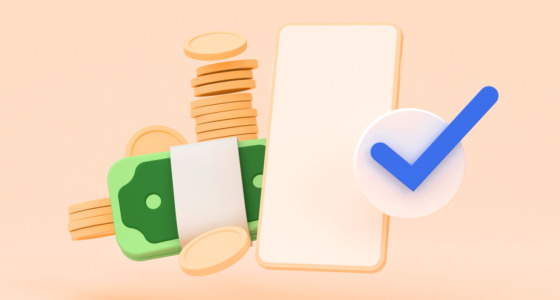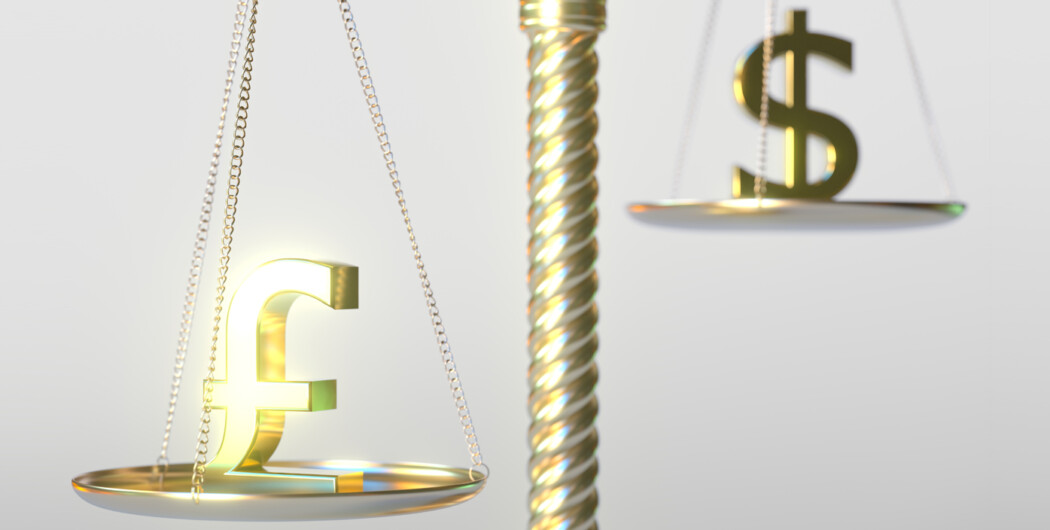

The pound is the oldest continuously used currency in the world. Its origins can be traced back over 1,200 years to Anglo-Saxon times when it was shaped as silver pennies. The term “sterling” itself comes from the Old Norman word “sterl,” meaning “little star,” and it was imprinted on early Norman silver pennies.
Over the centuries, the pound has evolved and gained significance as one of the major global currencies. It’s known for its stability and influence in international finance. But have you wondered why? Why is the pound stronger than the dollar and many other world currencies?
What is the GBP/USD pair?
The GBP/USD pair represents the exchange rate at which the British pound (GBP) can be converted into US dollars (USD) or vice versa. It indicates how many dollars are needed to buy one pound. For example, if the exchange rate is 1.25, it means that one pound is equivalent to 1.25 dollars.
The pair is one of the most widely traded currency pairs in the forex market. It’s often referred to as Cable. The nickname originated from the time when exchange rates were communicated between the two countries via an underwater cable in the mid-19th century.
Recent price history of GBP/USD
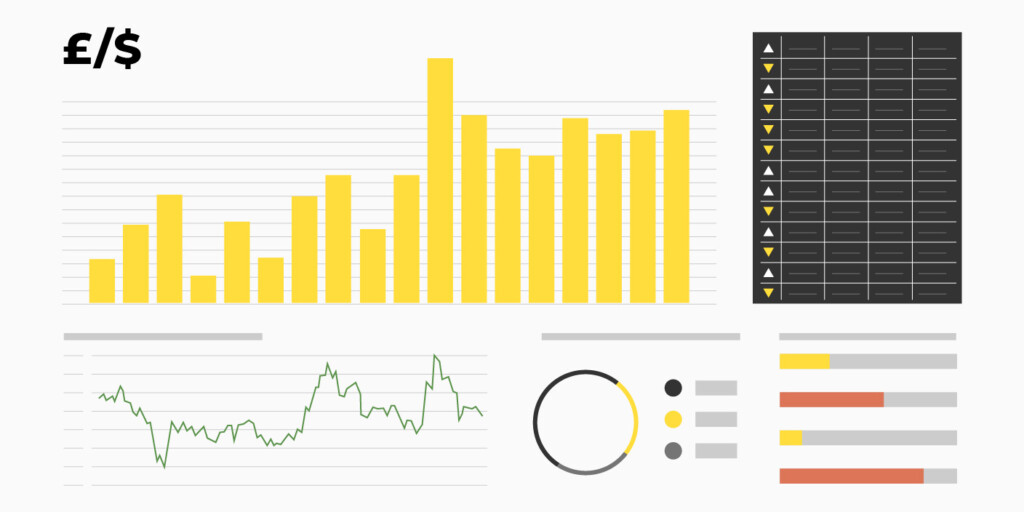
“One way to think of currencies is that it’s like a marathon that never really ends,” said Jonas Goltermann, a senior economist at Capital Economics, a London-based research firm.
In the early 2010s, the GBP/USD pair experienced a relatively stable period. The exchange rate ranged between approximately 1.50 and 1.70, with occasional fluctuations in response to economic events and market sentiment.
Economic turmoil
However, in 2016, there was a significant uptick in market turbulence and far-reaching implications for the UK’s economic landscape. There was a notable shift in the exchange rate between GBP and USD, with the pound experiencing a significant decline. In the immediate aftermath, the exchange rate hovered around 1.30, reflecting the uncertainty surrounding the situation.
As concerns grew amidst ongoing negotiations, the exchange rate exhibited fluctuations within a range of 1.20 to 1.40. The approaching deadline for a crucial economic transition fueled volatility in the pound’s value. Nonetheless, a resolution gave some clarity on the matter, and it had a positive impact on market sentiment, contributing to a more stable environment.
From all-time low to strong performance
Eswar Prasad, an economist at Cornell University, said, “The death of the queen and the fall of the pound do seem jointly to signify decisively the end of an era.”
In 2022, the pound hit an all-time low of 1.035 against the dollar due to concerns about the UK economy, high inflation, and unemployment. The weakened pound also increased import costs and added to the government’s debt load.
However, by April 2023, the pound rebounded and became the best-performing G-10 currency of the year. The rate reached 1.24, which is lower than the pre-2016 levels but significantly stronger than just in September 2022.
Relative strength
Why is the British pound so strong? Well, that depends on your definition of “strong”. The relative strength of a currency is not solely determined by the worth of one currency compared to another at a specific point in time. The Japanese yen illustrates this point perfectly. While the yen is considered a strong currency, its value relative to the US dollar is low.
In the case of GBP/USD, historically, the pound has typically been valued higher than the US dollar. But this doesn’t say a lot about the overall strength of the British economy.
To assess the relative strength of a currency, it’s important to consider factors beyond a single snapshot. For instance, you need to assess supply, demand, inflation, economic growth, trade balance, and other underlying economic factors. These change over time and change the power dynamic between GBP and USD.

Quoting conventions
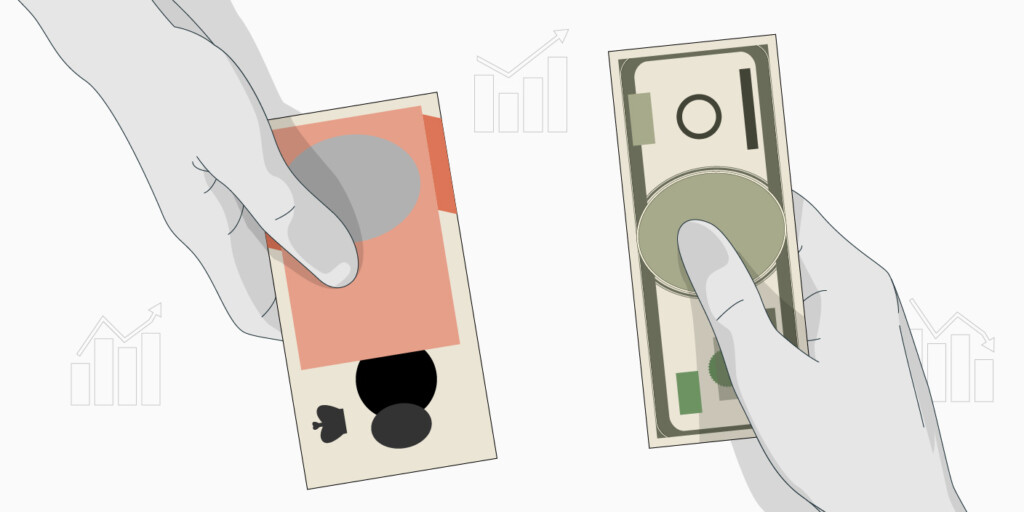
Traditionally, the GBP has been quoted in a manner that highlights its strength against the USD. For instance, a quote of 1.2500 GBP/USD means that 1.25 USD is equivalent to one pound.
This convention has its roots in the British Empire era. The UK had a larger economy than the United States, so the tradition has persisted over time despite the shift in economic power. The UK economy’s prominence spanned from the late 1900s up until World War I. But since then, the USD and the US economy have since surpassed it in both value and size.
Quoting conventions are not easily changed. This is primarily due to the widespread adoption and familiarity of existing conventions within the financial industry. The historical significance and long-standing tradition associated with the GBP/USD quoting convention are responsible for its continued use, even after the economies of the two countries have evolved.
Purchasing Power Parity (PPP)
There is another economic concept you need to know to comprehend the power of the pound.
The basic idea behind Purchasing Power Parity, or PPP, is that the exchange rate should equalize the purchasing power of each currency in its respective country. In other words, let’s say a basket of goods costs 100 pounds in the UK and the exchange rate is 1.2500 GBP/USD. According to PPP, the equivalent cost of that basket in US dollars should be 125 dollars.
However, it’s important to note that PPP is a theoretical construct. In practice, exchange rates often deviate from their PPP levels. The extent to which a currency deviates from its PPP is considered a measure of its relative strength or weakness against another currency. And these deviations are usually attributed to speculative forces.
Position in the global economy
Even before the recent events, GBP hasn’t been invincible. The course of history, including such events as World War I, World War II, and the subsequent breakup of the British Empire, had a profound impact on its position. These events took a heavy toll on the British economy and its currency, leading to a decline in the pound’s influence.
Meanwhile, the dollar emerged as the primary currency of exchange in the global economy. It became the standard for pricing various commodities, including oil, grains, and metals. The widespread acceptance of USD as the pricing currency for commodities further solidified its role in international trade.
In addition to that, the dollar also established itself as the leading reserve currency globally. It currently accounts for approximately 60% or more of currency reserves held by other countries. Put differently, many nations hold US dollars to facilitate international transactions and provide stability to their own economies. And during times of market uncertainty or upheaval (like stock market downturns or geopolitical concerns), dollars are viewed as a safe-haven currency.
But you shouldn’t disregard GBP either. The United Kingdom remains a major global economy with a diverse range of industries, including finance, technology, and creative sectors. London, in particular, is one of the world’s leading financial centers. And so, the GBP maintains a presence in international financial transactions and still serves as a medium of exchange for trade and investment activities. It’s just not as prominent as it once was.
What affects the daily GBP/USD rate
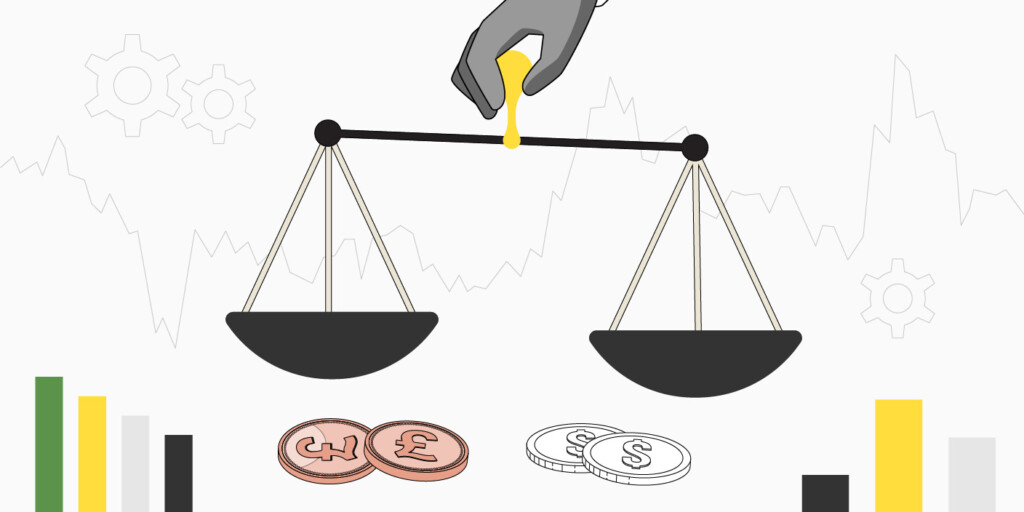
Here are the main factors that play a crucial role in determining the relative value of the GBP and USD:
- Bank of England monetary policy – The central bank of the United Kingdom influences the value of the British pound by reviewing interest rates. Reviews take place multiple times a year and are adjusted to regulate the economy.
- Federal Reserve monetary policy – The central bank of the United States, in turn, affects the value of the US dollar. By raising and cutting interest rates they stabilize major economic metrics, including employment and inflation..
- Inflation rates – This refers to the rise in prices of goods and services over time. High inflation can be controlled by raising interest rates, which subsequently slows down the economy.
- Employment data – Statistics on employment levels in the US and the UK are important indicators of the overall health of the economies. They often influence government policies and the decisions of central banks.
- Industrial production – The level of output in the manufacturing sector measures whether an economy is growing or shrinking, i.e., the attractiveness of the currency.
- Retail sales – This refers to consumer spending. It’s used to assess the overall economic well-being and shapes market sentiment towards the dollar and the pound.
Conclusion
So, why is the pound more expensive than the dollar? The United Kingdom’s historically strong economy and its reputation for stability and trust contribute to the higher value of the pound. However, it’s important to avoid making simplistic conclusions. The GBP/USD exchange rate shouldn’t be used as the sole indicator to determine which currency is stronger or weaker. In fact, GBP has lost some of its value in recent years.
The US dollar’s global prominence and strong economy have contributed significantly to the depreciation of the pound. Recent economic events and a widening interest rate gap have further weakened the pound. Moreover, speculation and macroeconomic developments can impact the currency market and potentially erode the pound’s premium further.
The British pound has faced significant challenges in maintaining its historical position against the US dollar. So far, it’s holding on to its value and even showing some improvement, but the future remains uncertain.
Sources:
GBP USD Historical Data, Investing.com
Purchasing power parities (PPP) – Conversion rates, OECD Data
Sterling is the best performing G-10 currency this year, CNBC
Why the British Pound Continues to Sink, The New York Times
